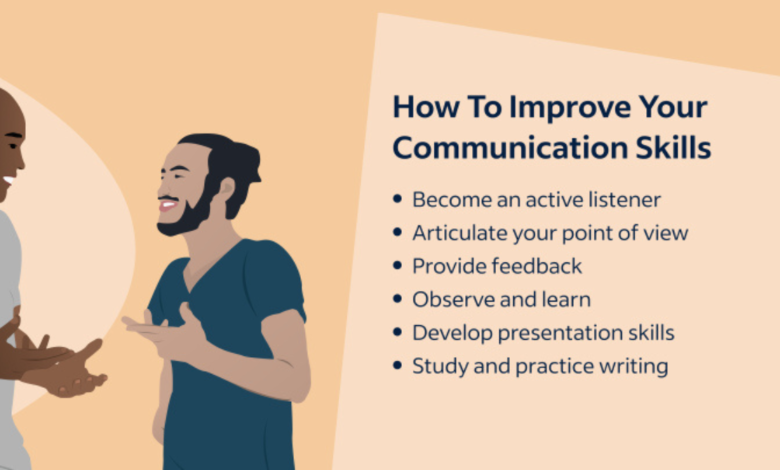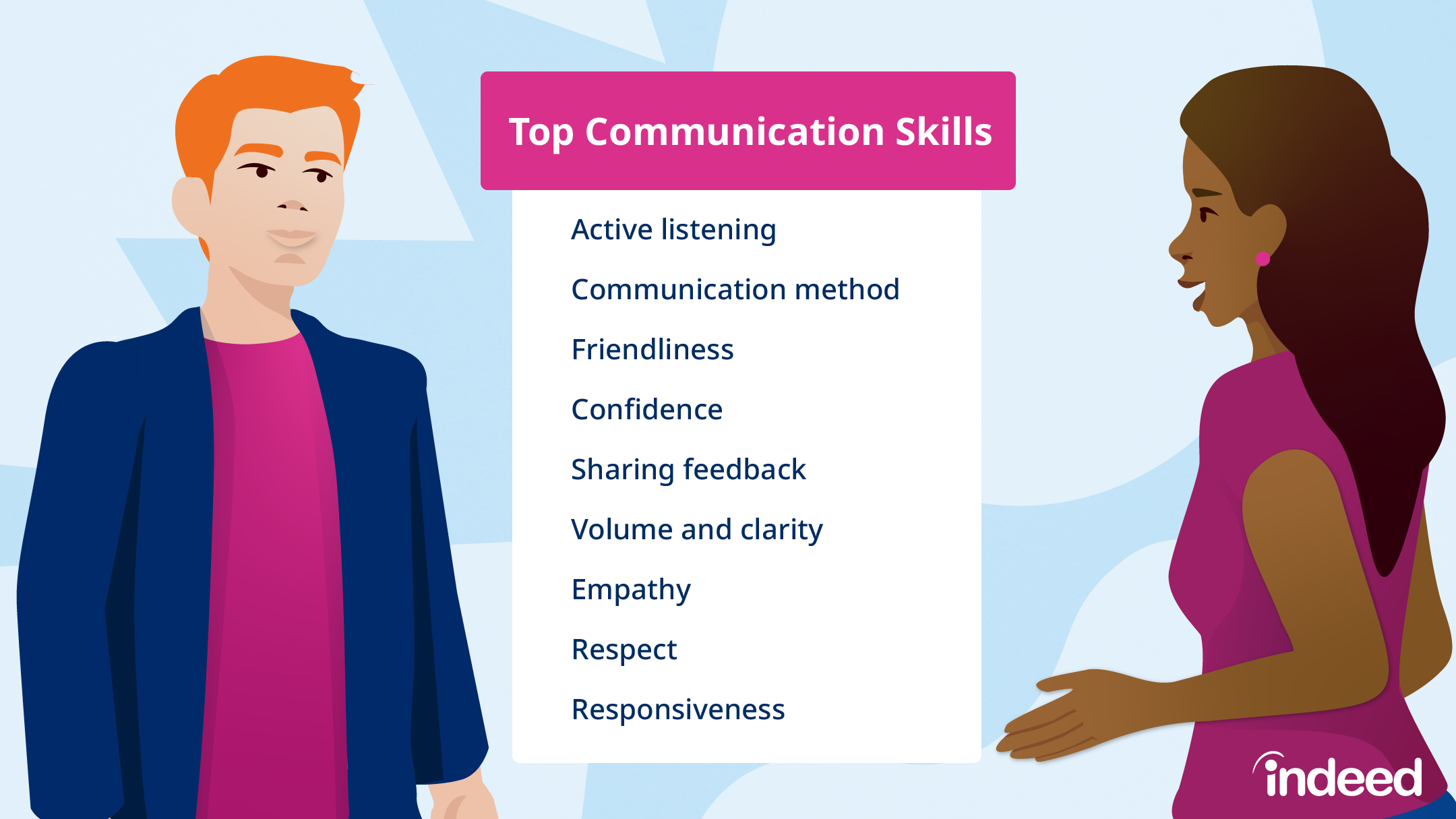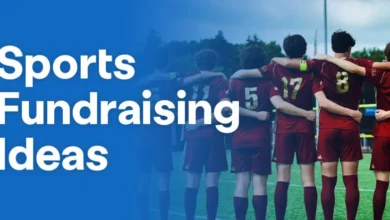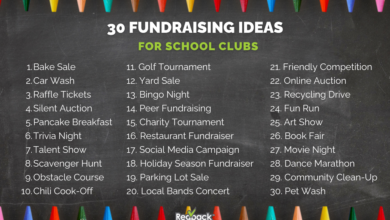Communication Skills Examples: Unlocking Your Potential

Good communication skills examples isn’t just about words—it’s about how you connect, convey ideas, and build trust with others. Whether you’re in a professional setting, chatting with friends, or resolving a conflict, effective communication is key. In this article, we’ll explore communication skills examples that help individuals thrive in both personal and professional spaces. We’ll also highlight how different types of communication enhance relationships, boost teamwork, and foster personal growth.
Mastering communication isn’t rocket science, but it does take practice, patience, and some key strategies. With the right communication skills, you can navigate life’s challenges, stand out in the workplace, and improve your connections. So let’s dive into real-life communication skills examples that you can use today!
What Are Communication Skills?

Communication skills examples are abilities that allow people to express their thoughts, emotions, and information clearly and effectively. These skills apply to both verbal (spoken) and non-verbal (body language, gestures, and tone) interactions. Communication isn’t limited to what we say—it also includes how we listen, understand, and respond.
From giving presentations at work to managing conflicts at home, good communication skills ensure that ideas flow smoothly, misunderstandings are avoided, and relationships grow stronger.
Why Communication Skills Matter
Communication shapes the way we experience the world. It influences relationships, job success, teamwork, and leadership abilities. Without proper communication skills, even the best ideas can get lost. Here are some key reasons communication is important:
- Builds Trust: Honest and clear communication fosters healthy relationships.
- Promotes Teamwork: Effective communication encourages collaboration and smooth task management.
- Solves Conflicts: Clear expression reduces misunderstandings and prevents unnecessary arguments.
- Boosts Self-Confidence: Knowing how to communicate well makes it easier to share opinions and ideas.
Types of Communication Skills
Understanding the different types of communication is essential. Let’s break them down and provide communication skills examples for each.
Verbal Communication
This involves speaking directly with others, either face-to-face, on the phone, or through virtual meetings.
Examples of Verbal Communication Skills:
- Speaking clearly and confidently
- Adjusting tone depending on the audience
- Using positive language to motivate and inspire
- Asking thoughtful questions to gain more information
Non-Verbal Communication
Body language, facial expressions, and posture all play a role in how we communicate without words.
Examples of Non-Verbal Communication Skills:
- Maintaining eye contact to show attentiveness
- Using gestures to emphasize points
- Nodding to show agreement or understanding
- Smiling to create a friendly atmosphere
Written Communication
This type involves sharing ideas through emails, reports, social media, or text messages. Strong written communication is essential in today’s digital world.
Examples of Written Communication Skills:
- Writing concise, error-free emails
- Using professional language in formal documents
- Structuring reports logically with headings and bullet points
- Responding promptly to messages
Listening Skills
Listening is a crucial part of communication. It’s more than just hearing words; it involves understanding and interpreting what’s being said.
Examples of Listening Skills:
- Paraphrasing to confirm understanding
- Avoiding interruptions while someone is speaking
- Providing feedback that shows you were paying attention
- Listening for tone and emotions, not just words
Communication Skills Examples for the Workplace
Strong communication is a game-changer at work. It helps employees collaborate, reduces misunderstandings, and ensures tasks ThreeBoystime are completed efficiently. Here are some communication skills examples relevant to the workplace:
- Leading Team Meetings: Explaining tasks clearly to ensure everyone understands their roles
- Giving and Receiving Feedback: Providing constructive criticism respectfully and accepting it gracefully
- Negotiation: Reaching mutual agreements by balancing assertiveness with empathy
- Conflict Resolution: Using diplomacy to solve disputes between colleagues
- Public Speaking: Presenting ideas in front of large groups or during meetings
How Communication Skills Improve Personal Relationships
Communication plays an equally vital role in personal life. Good communication strengthens relationships, makes conflicts easier to resolve, and promotes emotional intimacy.
Examples of Communication Skills in Relationships:
- Active Listening: Paying close attention to a partner’s thoughts without interrupting
- Expressing Feelings Honestly: Sharing emotions openly while respecting others’ perspectives
- Empathy: Understanding how the other person feels and acknowledging their emotions
- Apologizing Sincerely: Using words that reflect genuine remorse during conflicts
- Setting Boundaries: Clearly explaining personal needs and limits
Common Communication Barriers and How to Overcome Them
Even with great communication skills, challenges can arise. Understanding and overcoming barriers is essential to maintain effective communication.
Communication BarrierImpactSolution
Language Differences Causes misunderstandings Use simple words and visual aids
Emotional Stress Leads to miscommunication Practice active listening and empathy
Lack of Attention Makes people feel unheard Focus on the conversation without distractions
Body Language Mismatch Sends mixed signals Align words with non-verbal cues
Cultural Differences Creates misunderstandings Respect and adapt to cultural norms
By being mindful of these barriers, you can improve your communication skills and create more meaningful connections.
Tips for Developing Strong Communication Skills
Improving communication takes effort, but it’s worth it. Here are a few tips to help you become a better communicator:
- Practice Active Listening: Give full attention to the speaker, and don’t interrupt.
- Keep It Simple and Clear: Use straightforward language to get your point across.
- Be Aware of Body Language: Non-verbal cues speak louder than words sometimes.
- Stay Calm Under Pressure: Practice staying composed during difficult conversations.
- Ask for Feedback: Ask others how you can improve your communication style.
Remember, communication isn’t about perfection—it’s about continuous improvement and genuine connection.
How Technology Influences Communication Skills
With technology evolving rapidly, communication has taken new forms. Emails, social media, and virtual meetings have made communication easier but also more complex. While technology offers many tools for interaction, it’s essential to strike a balance between online and in-person communication.
Examples of Digital Communication Skills:
- Writing professional emails with proper etiquette
- Using emojis thoughtfully to convey tone in informal conversations
- Managing virtual meetings effectively with clear agendas
- Responding quickly to messages to maintain professionalism
The Power of Communication Skills in Leadership
Good communication is a hallmark of great leadership. Leaders must inspire, motivate, and align their teams toward common goals, all while managing conflicts and providing feedback.
Examples of Leadership Communication Skills:
- Inspiring Team Members: Using motivational language to boost morale
- Clarity in Instructions: Explaining tasks in simple terms so everyone understands
- Emotional Intelligence: Recognizing and addressing team members’ emotions
- Delegation: Assigning tasks with clear expectations and deadlines
- Building Trust: Being transparent and approachable
Conclusion: Using Communication Skills Examples to Build a Better Future
At the heart of every successful interaction—whether at work, at home, or online—are effective communication skills. By practicing the communication skills examples shared in this article, you can develop better relationships, foster collaboration, and achieve your goals more efficiently.
Remember, communication is a lifelong skill that evolves with time and experience. Whether you’re giving a presentation, writing an email, or simply having a heartfelt conversation, good communication makes all the difference. Keep practicing, stay open to feedback, and enjoy the rewards of better connections and smoother conversations.
By focusing on these communication skills examples, you’ll be well-equipped to handle life’s challenges, express yourself confidently, and create meaningful relationships. Good communication is the bridge to success—and it’s never too late to start improving it!




